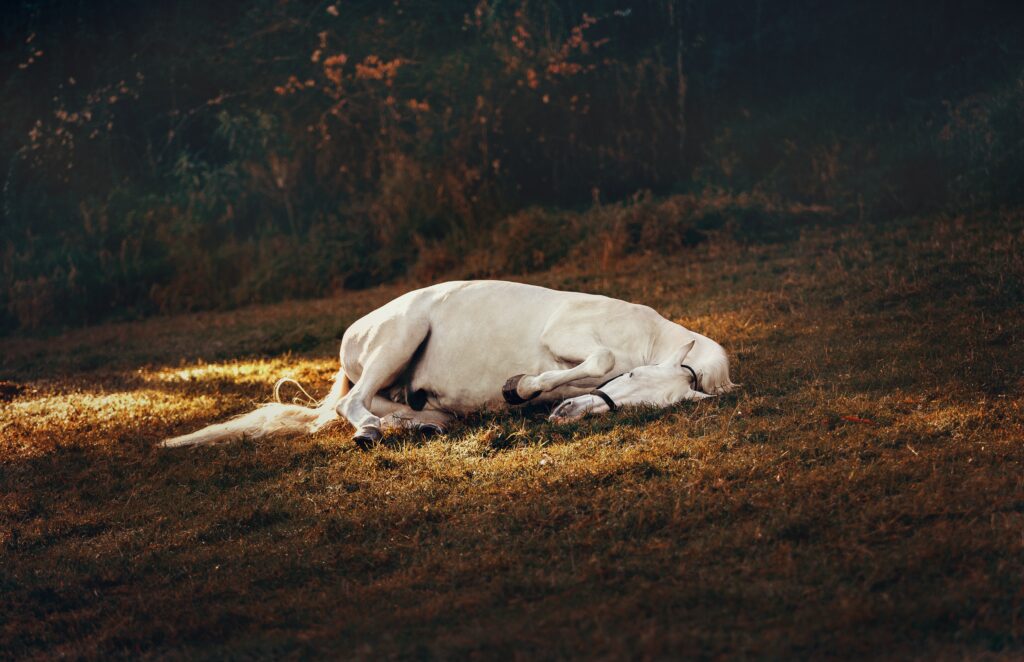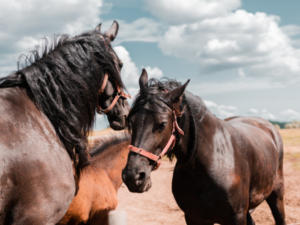Have you ever driven by a pasture only to see all the horses’ heads drooping down toward the ground? You probably assumed horses get all their sleep standing up.
Unless you’ve worked or lived closely with horses, you may not be used to seeing them lying down, but it’s no cause for concern when you do. As a matter of fact, if they are to get the deep REM sleep their brains and bodies need, they must lie down.
Sleep Patterns of Horses
Horses tend to adjust when they sleep to the activities that go on around them or engage them. If there’s an activity in the barn at daybreak, work in the afternoon, trail riding at dusk, or grooming in the evening, they’ll be awake for it. You will, however, catch them sleeping in between all of this action as they are polyphasic sleepers.

While they get most of their sleep overnight, horses are fantastic power nappers. Throughout the day, they sleep in short bursts lasting only a couple of minutes each time. During this sleeping state, the horse experiences slow-wave sleep (SWS). Humans and horses both need this kind of restorative sleep, but it may be easier for the horses to achieve because they can do it standing up!
Within a horse’s leg is the stay apparatus. Also found in other large mammals like cattle and elephants, the stay apparatus allows the animal to remain standing without muscle activity through an intricate system of tendons and ligaments.
In this way, a horse can rest its body yet be ready to move at a moment’s notice. Horses that feel safe may lie down for SWS, but not having to get up from the ground saves so much time, especially if a predator is lurking nearby.
At some point, a horse must lie down to sleep if it is to stay alert and healthy. This also takes off less strain on the joints. While SWS is good for the body, rapid eye movement sleep (REM) is good for the body and mind. When deprived of this, humans and horses are sluggish.
Horses and REM Sleep
For a horse to experience REM, it will not be able to remain standing. It is impossible for REM to happen when a horse is standing because, during this state of sleep, it cannot keep its muscles engaged. In a horse, REM sleep may account for only a few hours of its total sleep. Out of a 24-hour period, horses tend to be catching z’s for a combined total of 7 hours.
If a horse faces extreme challenges that keep it from sleeping as it needs, it probably won’t begin showing any symptoms of sleep deprivation for a few days. Many situations may cause a horse to feel unsafe or to physically be unable to lie down.
Summary
Traveling is one such reason why a horse won’t sleep as it usually does. Adding a new animal to the stable can also create an environment too stressful for the horse to sleep on the ground. While you surely won’t want to call the vet because the horse is lying down to sleep, sudden changes in its sleep habits would be a reason for concern.

